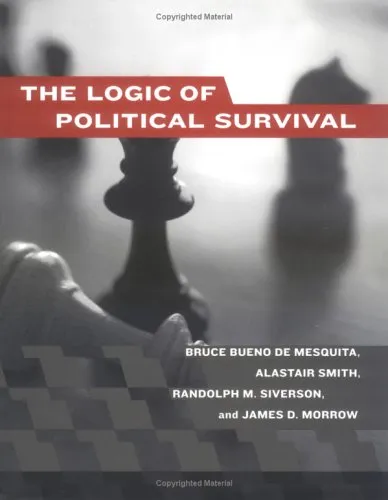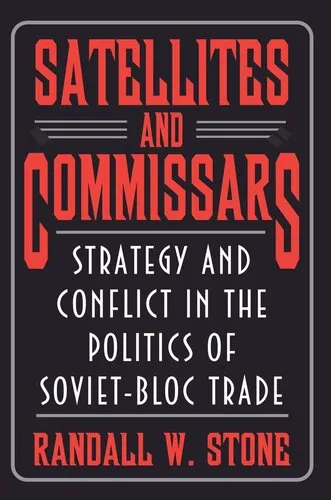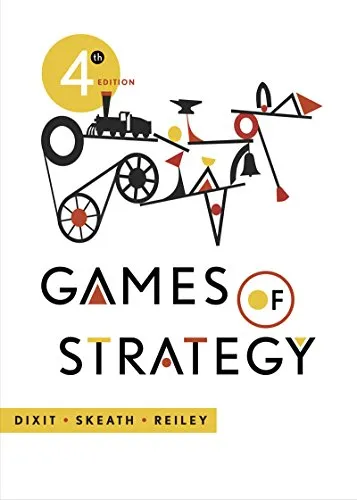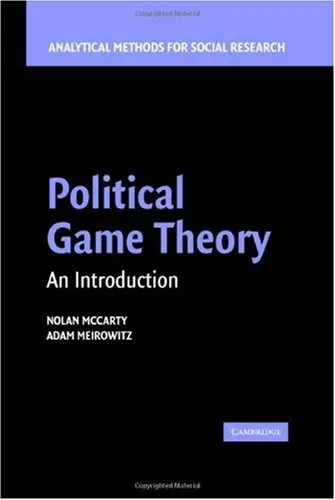The Logic of Political Survival
4.5
Reviews from our users

You Can Ask your questions from this book's AI after Login
Each download or ask from book AI costs 2 points. To earn more free points, please visit the Points Guide Page and complete some valuable actions.Related Refrences:
Introduction to "The Logic of Political Survival"
Why do some leaders and governments succeed while others fail? Why do nations prosper under certain regimes while languishing under others? In their seminal work, The Logic of Political Survival, Bruce Bueno de Mesquita, Alastair Smith, Randolph M. Siverson, and James D. Morrow explore these questions with a groundbreaking approach to political science. Using theoretical models along with real-world examples, the authors delve into the logic that drives political decisions, helping readers uncover the complexities behind governance, leadership, and survival in the political arena.
This book bridges political science, economics, and leadership studies to answer the most pressing questions about the frameworks that shape political institutions. By decoding the behaviors of leaders, the authors explain why some governments stay stable and strong while others crumble, and why some leaders prioritize public welfare while others act primarily in their own self-interest. With a keen focus on institutional structures and incentives, the book provides a robust framework for understanding political stability and economic development.
Summary of the Book
The central argument of The Logic of Political Survival rests on the concept of political incentives shaped by institutional structures. Specifically, the authors introduce the idea of "selectorates" and "winning coalitions." Leaders depend on their winning coalition—or the subset of the selectorate whose support is essential for staying in power. This dependency creates political incentives that determine whether officials govern in the interest of the public or cling to power by prioritizing a limited group of supporters.
The book analyzes both autocratic and democratic systems, explaining why leaders in democracies tend to provide public goods and services, while in autocracies, resources are often funneled toward private gains for the ruling elite. The authors use formal models to demonstrate how leaders strategically balance public welfare and private rewards to maximize their political survival. Drawing on historical and contemporary case studies from around the world, they explain why some systems foster economic growth and stability while others perpetuate corruption and stagnation.
Through rigorous data analysis and theoretical insight, the book builds a powerful argument: leadership decisions are the product of incentives created by political systems. As such, governance outcomes are less about the moral character of leaders and more about the constraints and opportunities created by the structures they operate within.
Key Takeaways
- Political survival depends on maintaining the loyalty of a winning coalition, often at the expense of broader public welfare.
- Democratic systems incentivize public goods provision since leaders depend on a larger coalition for survival, whereas autocracies favor private goods for a narrow base of supporters.
- The selectorate theory provides a unified framework to understand the political dynamics in diverse governmental systems.
- Economic and political outcomes are largely shaped by institutional constraints rather than individual moral choices.
- Reform efforts must focus on altering incentive structures rather than merely replacing leaders.
Famous Quotes from the Book
"Governance is not about choosing between being a good or bad leader. It is the result of incentives and constraints that reward certain behaviors while punishing others."
"Leaders who rely on the support of a narrow coalition have every reason to prioritize their supporters' welfare over that of the masses."
"Economic development flourishes when good policies align with leaders' desire to stay in power."
Why This Book Matters
The Logic of Political Survival has become a cornerstone in political science due to its revolutionary approach to understanding governance. It transcends ideological boundaries by focusing on structural dynamics rather than moralistic or historical explanations for political success and failure. This framework has had far-reaching implications for policymakers, economists, and leaders striving to improve governance structures.
The book sheds light on critical topics such as corruption, economic inequality, and the relationship between governance practices and development outcomes. By offering profound insights and practical tools for analyzing political systems, this work appeals to academics and practitioners alike. In an era where effective governance is vital to address global challenges, the lessons from this book remain as relevant today as when it was first published.
Free Direct Download
You Can Download this book after Login
Accessing books through legal platforms and public libraries not only supports the rights of authors and publishers but also contributes to the sustainability of reading culture. Before downloading, please take a moment to consider these options.
Find this book on other platforms:
WorldCat helps you find books in libraries worldwide.
See ratings, reviews, and discussions on Goodreads.
Find and buy rare or used books on AbeBooks.
2480
بازدید4.5
امتیاز0
نظر98%
رضایتReviews:
4.5
Based on 0 users review
Questions & Answers
Ask questions about this book or help others by answering
No questions yet. Be the first to ask!














